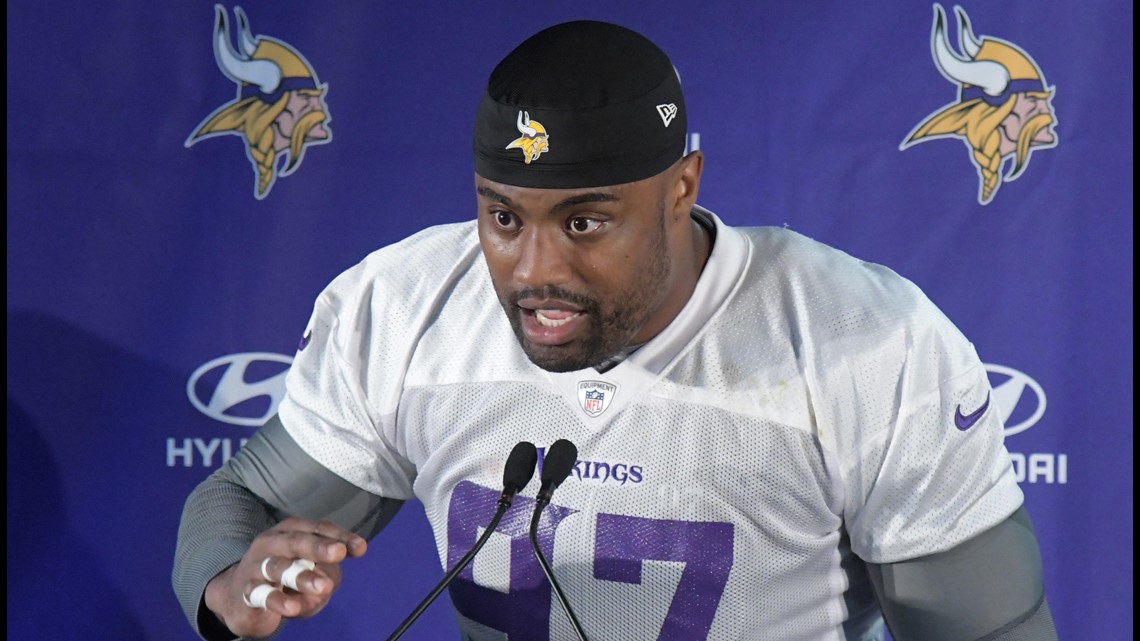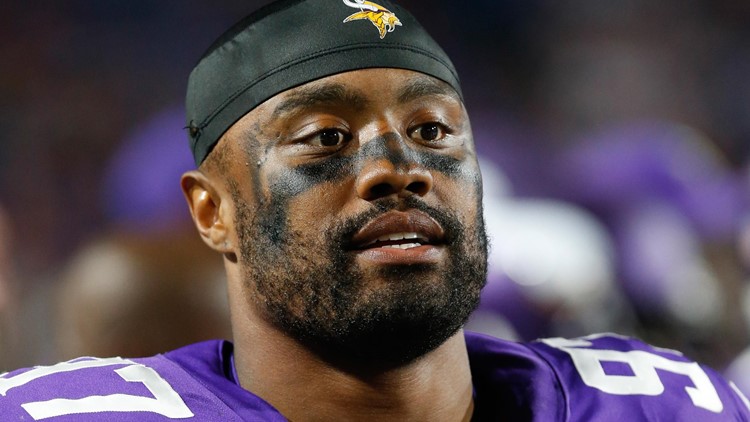Start column.
Write a few lines.
Delete.
Go back to social media threads concerning breaking news about Minnesota Vikings Defensive End Everson Griffen and re-read information from multiple sources.
Start column again, write a few more lines.
Delete.
Change thought process for the umpteenth time, start to write again.
Delete.
Again.
I covered sports in this market for KARE for eleven years before making the transition to the 'news' side of the newsroom. When I was in sports there were many times I wished that I was actually in news, to cover a particular story. Other times, I was thankful I was in sports so I didn’t have to.
Sometimes, however, sports IS news, and most often when sports becomes news it’s because something of a serious nature has happened... and usually the news is not good.
When covering or writing about sports, you’re constantly dealing with emotions. One of my favorite things I like to say is “Sports is the most important 'unimportant' thing that people like to talk about.” We constantly engage over how our favorite teams and players performed, and those conversations often revolve around how we could have done things better.
And then there are times when you’re dealing with a subject that carries real weight, like an athlete's well-being. It’s during those times when you have to remove the emotion and deal exclusively in facts. Trouble is, as you’re researching (especially these days) as everybody deals with news in real time. Facts keep changing and you find yourself obsessing about the people involved, the subjects being discussed and the necessity to get it right over the desire to get it first.
You HAVE to get it right.
When there is breaking news, especially news that touches on celebrity, you feel the urge... the overwhelming desire.... to get the story first, but in the rush to publish you risk getting the story wrong, and adding further distress to those involved.


This is not only someone’s life you’re dealing with, as in the cast of the Vikings' defensive end, but potentially many lives, as the news may concern subjects like mental health... a topic that affects not only one person, but many people, in many ways.
The result? You move away from those subjects you know only in passing, and leave them to the experts. You put aside emotion and draw on experience, trying to share with others that which you know to be true, in hopes that you can add context to an evolving story.
Which brings me to this: In my first trip to the Minnesota Vikings TCO Performance Center in Eagan, I was able to interview several Viking players following one of the team’s OTA’s (Organized team Activities). Of the several players I spoke with was Everson Griffen.
I waited until the sports reporter group scrum was over, I asked Everson if he had a minute, and he stopped. I wanted to ask him about playing through a torn plantar fascia, a painful and nagging condition he endured most of last season.
That Griffen was able to play through the condition was unfathomable: I had dealt with plantar fasciitis for years, and the best way to describe it is that it feels like you’re constantly walking on broken glass. I couldn’t imagine how anybody could be running, cutting and pushing against super-strong, 300-plus pound men with a torn plantar fascia.
Everson initially eyed me with suspicion. We had no previous relationship, he didn’t know me or what my motivations may be. But we quickly bonded over the shared misery of a physical condition that can both humble and disable a human being so quickly and completely.
Griffen told me how, after discussing his situation with the team’s medical personnel, he had made the decision to play as he felt the team was in the midst of something special and that he wanted to be a part of it. He also shared that even in his limited condition, he still felt he could help the team, and how badly he wanted to play.
The reason I wanted to talk to Everson that day was because I felt that I had found an almost embarrassingly simple solution to our shared problem, inserts for my shoes that had not only cured my plantar fasciitis, but for the first time in years I was actually walking and running, pain-free.
He thanked me for sharing and assured me that he not only had been prescribed custom inserts, but had spent much of the off-season rehabbing the injury and that he had a handle on it.
In parting I wished him good luck and good health going forward, which is something I do at the conclusion of every conversation I have with an athlete. We shook hands and moved on.
I thought about that visit a lot as the recent news broke about Everson Griffen and his recent struggles. I wished I could have another conversation with him. Not to find out what had already happened, or what was currently happening and why... but rather to offer him a simple solution from a shared experience, and to wish him good luck and good health going forward.


